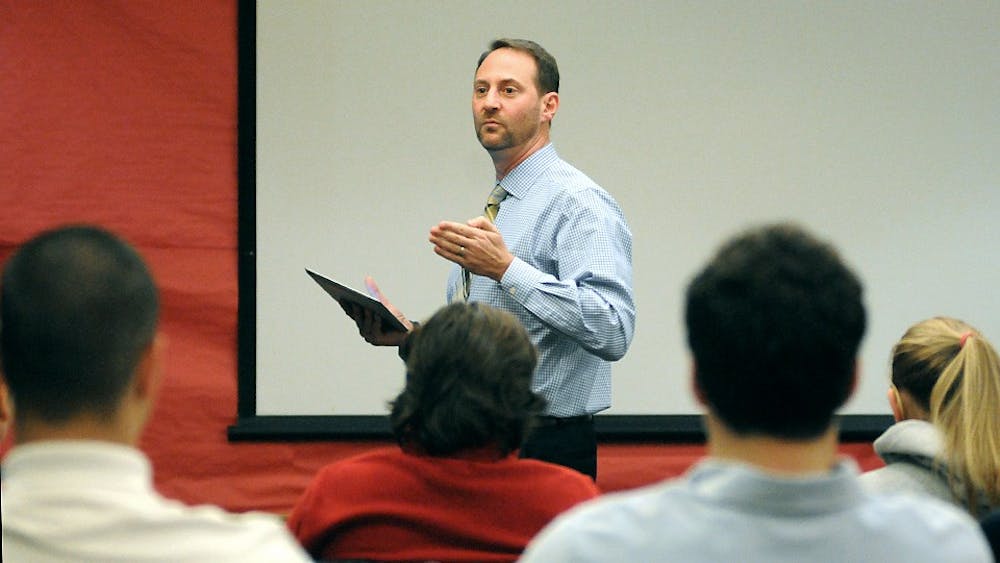Riddled with back pain and unable to bend down to tie his own shoes, Stuart Singer did not realize the end of his basketball career was the beginning of his life’s work. Singer spoke to Shippensburg University athletes on Tuesday, Feb. 3, about the fear of failure; where his ideas of the mental game began in high school basketball.
An alumnus of SU, Singer teaches athletes how to improve their performances through mental training.
“What does it mean to be focused?” Singer asked the assortment of athletes gathered in the Ceddia Union Building, all whispering and laughing with turned heads to those to the right and left of them.
Singer asked for cell phones to be put away and for everybody to be in the moment for 30 to 40 minutes while he spoke. Jackets rustled and eventually the room was still. All heads turned toward Singer, who began his lecture.
When athletes face fear before a game, they are worried about mistakes that could lose the game, result in failure or make them look stupid, Singer said. Fear is a prediction of something that may happen, but since nobody can predict the future, it is not worth worrying about.
“It’s a story that you tell,” Singer said of fear. “It’s not real.”
That free-throw shot is the same in the game as it is during practice, Singer said. The only thing that changes is the athlete’s mental approach, because now there is the fear of failure.
It is not a catastrophe if that basketball hits the rim and bounces off, Singer said.
“Part of performance is to fail,” Singer said.
This is how athletes improve. They have to push boundaries and when they are on the edge sometimes, they fall off, Singer said. They fall off and come back stronger than before because that failure taught them to work even harder for a taste of success.
A group of students huddled around Singer after his lecture, trading comments and questions.
Senior Pete Gelston reflected on his own experience, saying that his failure in his freshman year was not qualifying for the Pennsylvania State Athletic Conference (PSAC) indoor track and field in the steeplechase. That failure helped him to win the PSAC steeplechase the next outdoor season.
“Without the failure, I probably never would have won,” Gelston said.
The only valid reason for someone to fear failure, Singer said, is if he or she is unprepared. Put in the training and there is nothing to fear.
“When you train, you give yourself the best statistical advantage,” Gelston said.
Sometimes, it is scarier to be on the sidelines watching the game than it is to be playing. Freshman field hockey goalie Catherine Matuszko is injured and said that she is more fearful sitting on the bench than she is between the goal posts. At least, when she is in the game, she has some control over what happens; but as a bystander, there is nothing she can do to help her teammates.
It all comes back to the fear of the outcomes. Athletes should not play to not lose, but play to win, Singer said.
“The only time failure is real is if you quit,” Singer said.




The Slate welcomes thoughtful discussion on all of our stories, but please keep comments civil and on-topic. Read our full guidelines here.